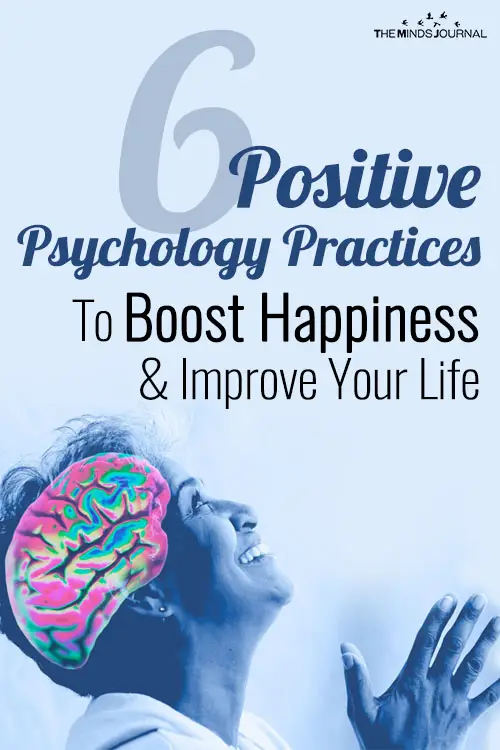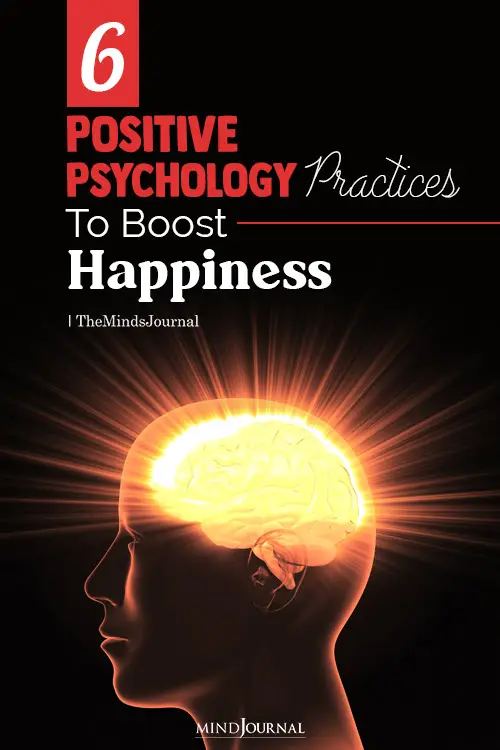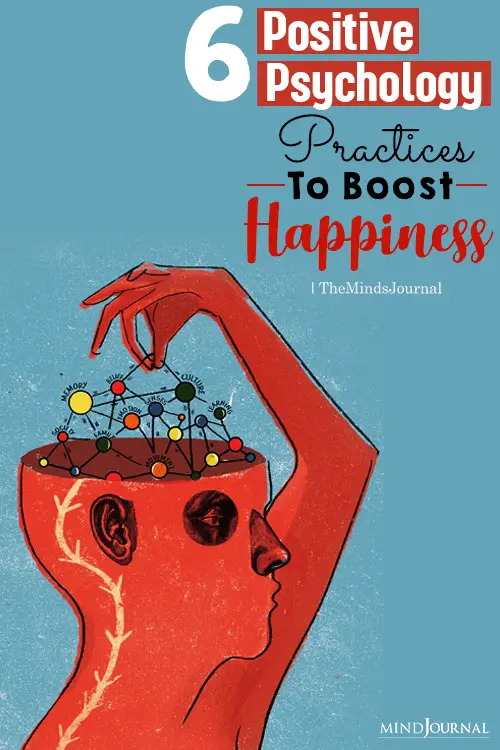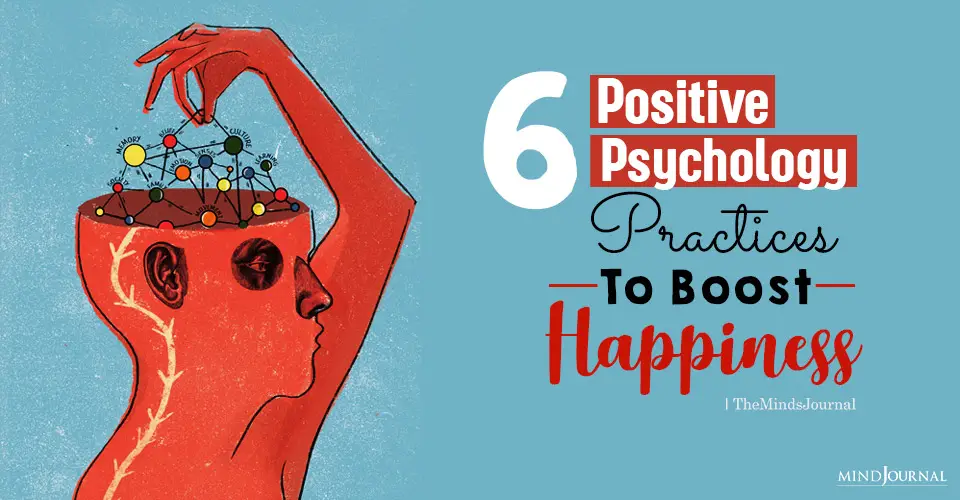Do you feel down & discouraged with your life? Are you struggling with your finances, relationships or health? Do you feel lonely? Well, you’re most certainly not the only person who feels this way.
Problems, personal issues, and circumstances can often demotivate us and leave us feeling depressed. This can lead to self-criticism and negative thoughts that can severely affect the quality of our lives. However, positive psychology practices can change all that and enable you to dramatically improve your life.
“The good life is a process, not a state of being.” – Carl Rogers
With the help of positive psychology, we can learn how to be more resilient, hopeful, optimistic, and happier in life. So if you’re going through turmoil in life and battling depression, positive psychology can help you develop the right mindset to improve your mood & overall wellbeing.
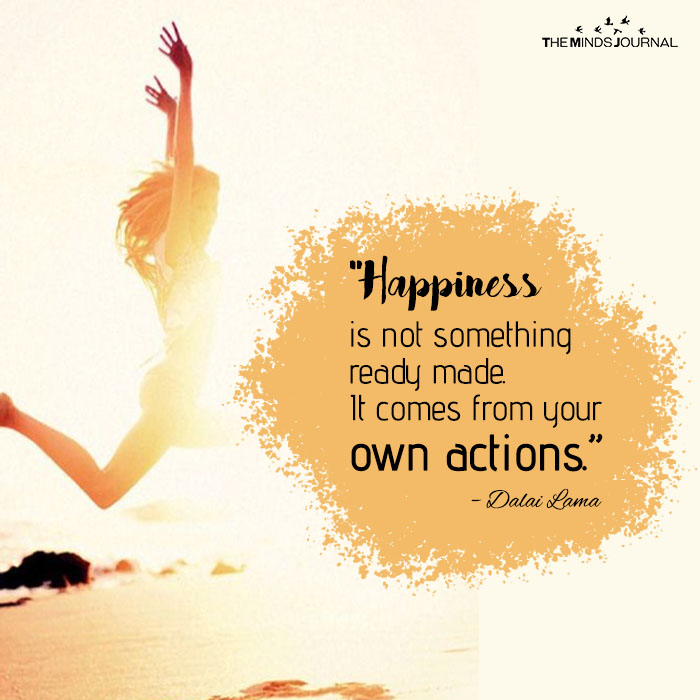
What Is Positive Psychology?
“The aim of Positive Psychology is to catalyze a change in psychology from a preoccupation only with repairing the worst things in life to also building the best qualities in life.” – Martin Seligman
Positive psychology is a comparably new field of psychology that studies happiness and how positive influences can make our lives more fulfilling. It is based on the principle that happiness relies on both mental and emotional factors like constructive institutions, optimistic emotions, and character strengths. With the help of positive psychology practices we can recognize happiness in each moment.
It is the scientific study of our personal development, virtues, and strengths that empower people, communities, and establishments to flourish. It has also an applied way to optimal functioning. The concept is based on the belief that humans want to flourish and live happy, fulfilling, and meaningful lives. We want to become the best we can and significantly improve the way we experience work, love, relationships, and life.
Related: 10 Most Crucial Positive Emotions To Cultivate Daily According To Positive Psychology
Not A Self-Help Strategy
“Positive psychology is not remotely intended to replace therapy or pharmacology. So when depressed, anxious or in panic or post-traumatic stress disorder, I am all for therapies that will work. Positive psychology is another arrow in the quiver of public policy and psychology through which we can raise well being above zero.” – Martin Seligman
Psychologist, author, and educator, Martin Seligman pioneered Positive Psychology and the term was coined by Abraham Maslow. Seligman believed that psychology should look towards what makes people happy in order to heal the damage from life’s miseries. It is dedicated to the reasons of mental well being like positive environments, positive emotions, and positive experiences along with human virtues & strengths.

Positive psychology is not another self-help strategy or a new way of presenting positive thinking. It is a science that emphasizes what makes people happy, how people flourish, and when individuals become their best inner selves. This form of study is meant to complement traditional psychology and focus on how things get better instead of how things get worse.
Positive psychology aims to help you:
- Boldly face the challenges of life and make the most of obstacles.
- Relate and engage with others on a personal level.
- Find meaning and fulfillment through productivity & creativity.
- Empower others to find wisdom, satisfaction & meaning in life.
Related: 17 Daily Choices You Can Make To Choose Happiness In Life
How To Use Positive Psychology In Your Life
“The good life is best construed as a matrix that includes happiness, occasional sadness, a sense of purpose, playfulness, and psychological flexibility, as well autonomy, mastery, and belonging.” – Robert Biswas-Diener
Psychologically, we are hardwired to focus more on negative influences and experiences. Truth is, most of us don’t have a clear idea about exactly what influences happiness in our lives. Positive psychology allows you to bring your memory, attention, and expectation away from negative experiences and focus more on the positives to get a balanced perspective.
Positive psychology enables us to identify and utilize our strengths and recognize our positive experiences and emotions. There are several positive psychology practices that are rather simple, effective, and accessible which can enable you to live a better life and help you enjoy the little things more.
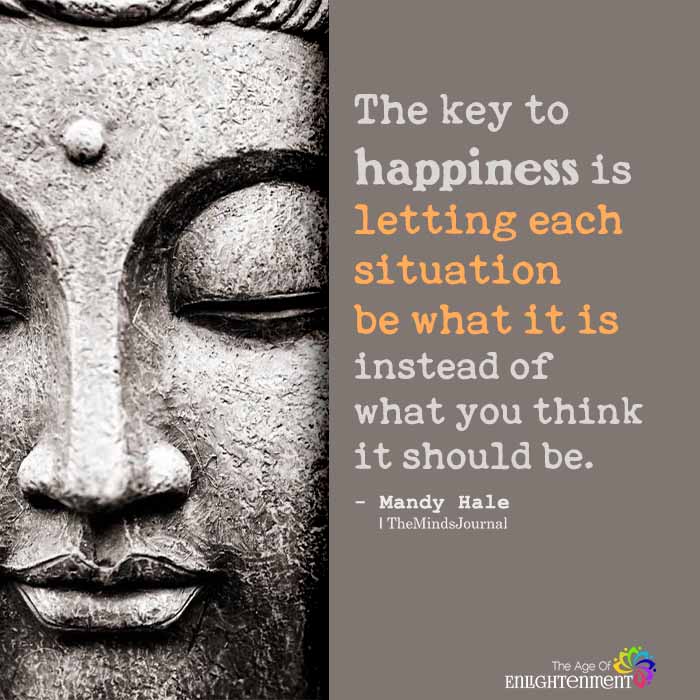
Here are some ways positive psychology can help you achieve mental and emotional well being.
1. Transform your mindset.
“Probably the biggest insight… is that happiness is not just a place but also a process. …Happiness is an ongoing process of fresh challenges, and… it takes the right attitudes and activities to continue to be happy.” – Ed Diener
Human beings basically have 2 types of mindset:
- Fixed mindset
- Growth mindset
A fixed mindset keeps you focused on goals and outcomes. You have fixed views and opinions and you are defensive about them. You don’t want to face any criticism about your beliefs, opinions, and your work.
When you embrace the growth mindset, you focus more on the process. You are more interested in life’s journey than the destination. You boldly accept challenges, learn from feedback, persist in setbacks, accept positive & negative criticism, and grow from them. You find inspiration in others. Adopting a growth mindset makes you more open to new ideas, enables you to make the most of available opportunities and learn from failure.
Related: The Importance Of Gratitude, And Best Ways To Practice It
2. Practice gratitude.
“Gratitude unlocks the fullness of life. It turns what we have into enough, and more. It turns denial into acceptance, chaos to order, confusion to clarity. It can turn a meal into a feast, a house into a home, a stranger into a friend.” – Melody Beattie
Gratitude is one of the simplest positive psychology practices that allow you to shift your mindset from negative experiences to positive experiences in a matter of minutes. By practicing gratitude on a daily basis you can express more kindness and compassion, sleep better, build stronger immune systems, experience positive emotions, and feel alive.
Simply by keeping a gratitude journal and writing down things you’re thankful for in life, you will force your mind to look at the beautiful things you already have in your life instead of what you wish to have or might have lost. You can also practice gratitude by volunteering for social causes, thanking someone, appreciating nature, and appreciating yourself, including your flaws.

3. Feel abundance.
“Abundance is not something we acquire, it is something we tune into.” – Wayne Dyer
What do you understand by abundance? A bigger bank balance? A healthier life? Being happier? Being more independent? It can be everything and you can have plenty of all that. Nature is inherently designed to grow and abundance can be found everywhere in the Universe including your personal life. But only if you allow it.
You need to have an abundant mindset and feel that there’s plenty of whatever you want in your life, even though you might not have it right now. You have to feel it in your hand, you have to see it and taste it even before you can see it with your eyes. Otherwise, you will always feel that you are lacking and that’s what you will keep thinking about.
And what we think, we attract. Gratitude is a great way to feel abundance and it can help you visualize the abundance you want in your future life. Set definitive goals and visualize them to manifest them.
4. Visualize.
“Affirm the positive, visualize the positive and expect the positive, and your life will change accordingly.” – Remez Sasson
Visualizing success is another way to feel positive and stay motivated. See yourself succeeding in life and acting like a winner. Visualize yourself winning or achieving a certain life goal. This mental image will improve your self-confidence and reinforce optimism and positive thinking.
Simply sit down in a distraction-free place, close your eyes and create a mental image of yourself completing a big task or assignment or presentation successfully and confidently. Focus on the details and even the smallest mannerisms while you talk yourself through it.
Visualization prepares you for success and subconsciously gears you up to put in all the hard work necessary to achieve that goal. Moreover, this will also calm your mind and body and make you less stressed and more confident in life.
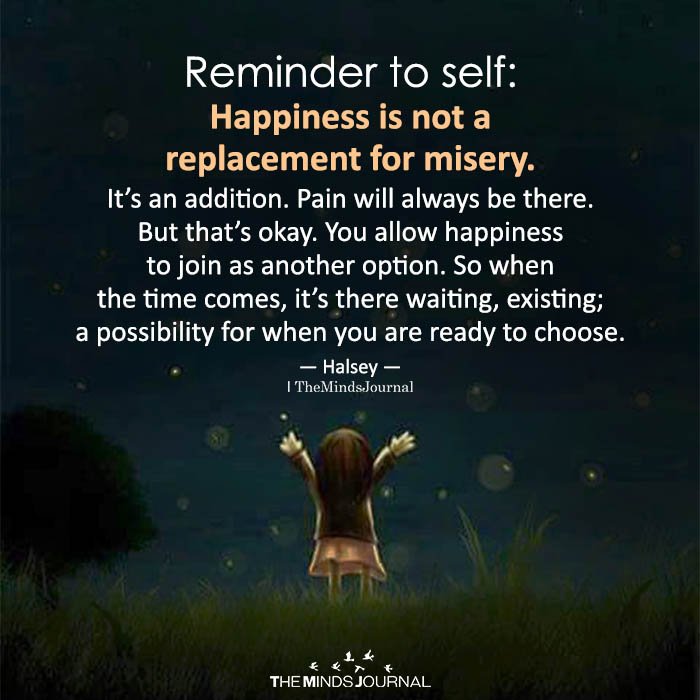
5. Smile.
“Smile in the mirror. Do that every morning and you’ll start to see a big difference in your life.” – Yoko Ono
What is the simplest and most effective way to use positive psychology? Smile. And then smile some more. You don’t have to ROFL to experience its physical, mental, and emotional health benefits. Simply by smiling you change your mood and temper from negative to feeling positive.
Apart from making you feel happier, smiling can also help to reduce stress and anxiety and improve your relationships. A smile is contagious, being around people who are jovial and tend to smile often can help you to smile more.
Related: How To Smile More for Health, Happiness, and Longevity
6. Practice self-love.
“Compassion is one of the few things we can practice that will bring…happiness to our lives.” – Dalai Lama
Self-hatred and self-criticism can often lead to low self-esteem. Unfortunately, most of us are very critical and judgmental of ourselves. We find fault with almost everything we do, we amplify even the tiniest imperfections and magnify our mistakes. However, instead of focusing on all the negatives and adversely affecting your self-confidence and self-esteem, you need to practice self-love and self-compassion.
Loving yourself and showing yourself compassion will improve your capability to enjoy simple experiences in your life. You will develop a positive outlook towards yourself to heal your inner wounds and work on your imperfections while embracing them. By loving yourself and showing kindness to yourself, you will be better able to experience the positives in life and empower yourself to flourish.
Use Positive Psychology Everyday
“If positive psychology teaches us anything, it is that all of us are a mixture of strengths and weaknesses. No one has it all, and no one lacks it all.” – Christopher Peterson
You must have realized by now that the positive psychology strategies mentioned above can be easily incorporated into your daily life without much effort. To get started, all you need is a mental shift to bring your attention from the negative to the positive.
You can try out all of these strategies or try out one or two to see how it impacts your life in a positive manner. Choose the ones you find the easiest, set your intentions, and practice them every day. Once you start experiencing the positive effects of these practices, you can incorporate more strategies and completely transform yourself and your life to live in a more meaningful, fulfilling, and positive way.
